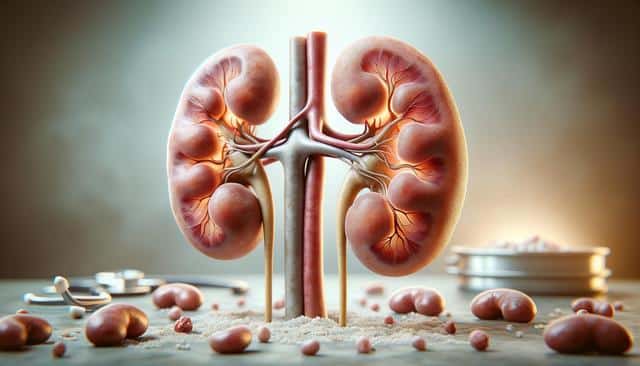Understanding Kidney-Friendly Diet
When managing kidney failure, adopting a kidney-friendly diet becomes essential. This specialized diet focuses on limiting intake of certain nutrients that the kidneys struggle to handle effectively. The goal is to reduce the workload on the kidneys while maintaining overall nutrition. Patients are generally advised to control their intake of protein, sodium, and phosphorus. Consuming high amounts of protein can lead to an overload of waste products in the blood, thus protein intake should be monitored carefully. Sodium is another element that needs to be restricted to prevent high blood pressure and fluid retention. Lastly, phosphorus, commonly found in dairy products and processed foods, should be limited as it can lead to bone problems when accumulated excessively.
The Role of Low-potassium Fruits and Vegetables
Potassium is a crucial mineral but can pose challenges for those with kidney failure. High potassium levels can lead to heart complications. Thus, incorporating low-potassium fruits and vegetables into the diet is vital. Some suitable options include apples, berries, cherries, and grapes from the fruit category, while cauliflower, cabbage, cucumbers, and lettuce are great vegetable choices. Patients should aim to avoid high-potassium foods like bananas, oranges, potatoes, and tomatoes, which can be replaced by their lower-potassium counterparts to maintain kidney health effectively.
Diet for Kidney Disease: What to Embrace and Avoid
Crafting a diet for kidney disease involves understanding which foods to embrace and which to avoid. Patients are encouraged to consume fresh foods over processed ones, as processed foods often contain high levels of sodium and phosphorus additives. It is beneficial to cook meals at home to control ingredients and flavors. Foods high in healthy fats, such as olive oil and avocados, can be beneficial when consumed in moderation. On the other hand, processed meats, canned foods, and fast food should be avoided due to their high sodium content. Additionally, it may be useful to work with a dietitian to tailor a meal plan that suits individual health needs.
What Should I Eat to Keep My Kidneys Healthy?
To keep your kidneys healthy, focus on a balanced diet that supports overall bodily functions while being gentle on your kidneys. Foods rich in omega-3 fatty acids, like salmon and flaxseeds, can help reduce inflammation and promote heart health, which is beneficial for kidney patients. It’s also important to stay well-hydrated by drinking the right amount of water, as dehydration can strain the kidneys. However, fluid intake should be monitored to avoid excess fluid buildup. Fiber-rich foods like whole grains, fruits, and vegetables support digestive health and can help manage cholesterol levels, contributing to kidney well-being.
Importance of Food and Nutrition in Managing Kidney Health
The importance of food and nutrition in managing kidney health cannot be overstated. Proper nutrition not only helps manage symptoms of kidney failure but also supports overall well-being and quality of life. A well-structured kidney-friendly diet can prevent complications such as bone disorders, heart disease, and malnutrition. Regular consultation with healthcare professionals, including a dietitian, can aid in the continuous adjustment of dietary plans to align with changes in kidney function and health status. Patients should engage in regular check-ups and follow recommendations to optimize their diet and health.
Conclusion
Managing kidney failure through dietary changes is an ongoing process requiring awareness and adaptation. By understanding which foods to include and avoid, patients can significantly influence their kidney health and overall well-being. Adopting a kidney-friendly diet, focusing on low-potassium fruits and vegetables, and limiting intake of protein, sodium, and phosphorus are fundamental steps. Collaborating with healthcare professionals ensures that dietary plans remain effective and personalized, ultimately enhancing the quality of life for those living with ESRD.
